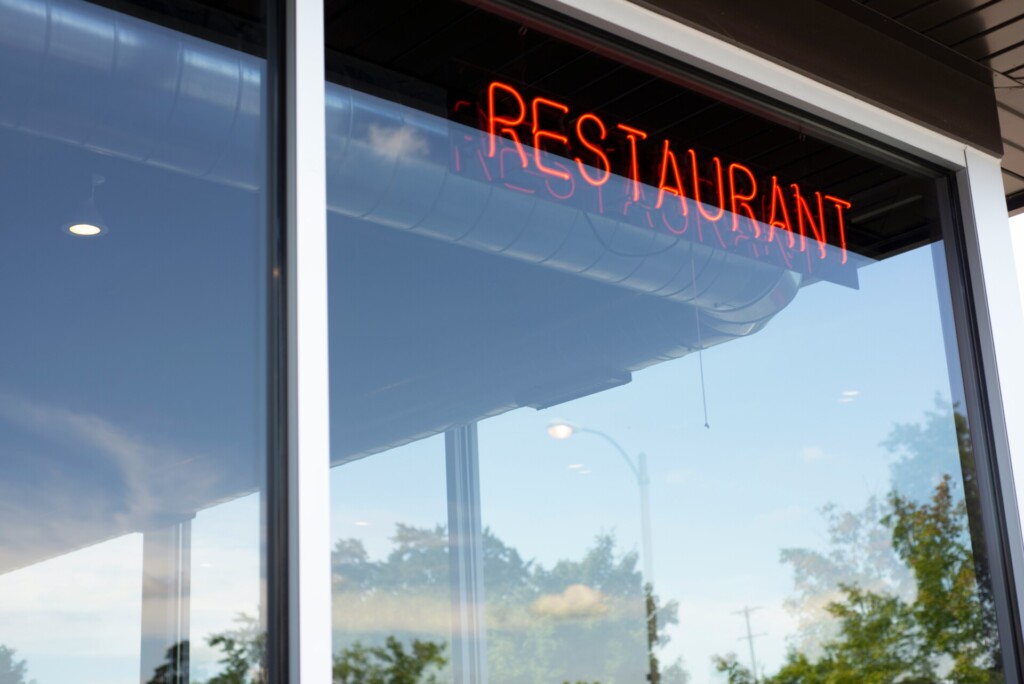At EB3 Construction, we understand that a restaurant permit is an essential legal document every food service establishment must secure before opening to the public. Typically issued by local health departments, this permit serves as official authorization to operate a restaurant in compliance with health and safety regulations. But what exactly does it involve, and why is it so critical to a restaurant’s success?
From our experience working alongside restaurateurs, we know that a restaurant permit confirms your establishment meets the strict health and safety standards required for food preparation and service. These standards exist to protect public health by ensuring proper food handling, storage, and sanitation. Whether you’re operating a small café or a full-service restaurant, the permit applies across the board.
We emphasize to our clients that the permit’s scope goes far beyond dine-in operations. It applies equally to establishments offering takeout and delivery services, reinforcing its role in upholding food safety across all service models. That’s why we include permitting as a key consideration during the planning and renovation phases of our projects.
We strongly caution against operating without a valid restaurant permit—not only is it illegal, but it also places your business at serious risk. No matter how excellent your cuisine or concept, opening without proper authorization can lead to severe penalties, including fines and potential shutdowns. Worse, it can harm your reputation and customer trust before you’ve even fully launched.
At EB3 Construction, we guide clients through every step of the permitting process as part of our commitment to delivering successful restaurant builds. Securing and maintaining a restaurant permit isn’t just a legal requirement—it’s a declaration of your commitment to public health and business integrity. When done right, it sets the foundation for long-term success and customer confidence.
What Types of Restaurant Permits Are Required?

When opening a food service establishment, securing the proper permits is crucial for legal operation. The specific permits required depend on the type of food service provided. Here’s an overview of the main permit categories:
Standard Food Service Establishment Permits
These permits apply to traditional sit-down restaurants, cafes, and other fixed-location eateries. We coordinate the application process to ensure all local health department requirements are met, including kitchen inspections and food safety certifications.
Temporary Food Service Permits
For food vendors operating at fairs, festivals, or other short-term events, temporary permits are necessary. These typically cover a specific timeframe, up to 14 days. We help navigate the unique challenges of temporary setups, such as proper food storage and sanitation in non-permanent facilities.
Mobile Food Service Permits
Food trucks, pushcarts, and other mobile vendors require specialized permits. These account for the mobile nature of the business and often include inspections of both the vehicle and any commissary kitchens used. Our team ensures mobile units meet all structural and operational requirements specific to these dynamic food service environments.
Specialty Permits
Certain food service operations may require additional permits:
- Frozen dessert manufacturing permits for ice cream shops or restaurants producing their own frozen treats
- Permits for selling potentially hazardous foods like raw fish for sushi
- Special event catering permits for restaurants offering off-site catering services
Alcohol Service Permits
Restaurants planning to serve alcohol need separate licensing, typically from state alcoholic beverage control agencies. We coordinate the alcohol permitting process alongside food service permits to ensure full compliance.
Navigating the permitting landscape can be complex, but it is essential for establishing a compliant and successful food service operation. Our experienced team manages the entire process, from initial applications to final inspections, allowing restaurateurs to focus on their culinary vision.
| Permit Type | Description |
|---|---|
| Standard Food Service Establishment Permit | For traditional sit-down restaurants, cafes, and other fixed-location eateries. |
| Temporary Food Service Permit | For vendors at fairs, festivals, or short-term events, typically up to 14 days. |
| Mobile Food Service Permit | Required for food trucks, pushcarts, and mobile vendors. |
| Specialty Permits | Includes permits for frozen dessert manufacturing, serving raw fish for sushi, and special event catering. |
| Alcohol Service Permit | Required for restaurants planning to serve alcohol, coordinated with state alcoholic beverage control agencies. |
By understanding and obtaining the right combination of permits, food service establishments can operate confidently within regulatory frameworks while providing safe and enjoyable dining experiences for their customers.
What is the Application Process for Restaurant Permits?
Obtaining the necessary permits and licenses is a critical step in opening a restaurant. While the exact process can vary by location, there are some common steps most jurisdictions follow. Here’s a general overview of the restaurant permit application process:
- Document gathering (1-2 weeks)
- Proof of worker’s compensation insurance
- Sales tax certificate
- Food safety manager certification
- Proof of food handler training for staff
- Application review (2-6 weeks)
- Health department reviews plans and documentation
- You may need to answer questions or provide additional information
- Pre-permit inspections (1-2 weeks)
- Health inspector visits to verify plans match the actual build-out
- Fire marshal inspection for safety compliance
- Building inspector checks for code compliance
- Final approval and fee payment (1-2 weeks)
- Pay remaining permit fees (varies widely by jurisdiction)
- Receive your official permits and licenses
Many jurisdictions now offer online application systems to streamline this process. These portals allow you to submit documents, pay fees, and track your application status electronically. However, in-person visits are still typically required for inspections.
It’s important to note that this timeline can extend significantly if there are issues found during plan review or inspections. We coordinate closely with local health departments, fire marshals, and building officials throughout construction to minimize delays. Starting the permitting process early – ideally 3-6 months before your planned opening – gives you the best chance of staying on schedule.
Remember, operating without proper permits can result in hefty fines or even forced closure of your restaurant. While the process may seem daunting, it’s designed to ensure food safety and protect public health. We’re here to guide you through each step and help you address any challenges that arise during the permitting journey.
What Documentation and Requirements Must You Meet?
At EB3 Construction, we understand that opening and operating a restaurant involves extensive documentation beyond just obtaining a basic permit. As general contractors experienced in numerous restaurant builds, we have seen the critical paperwork and requirements owners need to navigate. Here is an overview of the essential documents and physical requirements you must address:
Essential Documentation
Food Protection Certificate: At least one supervising employee must complete an approved food safety course and obtain certification, demonstrating your commitment to proper food handling practices.
Certificate of Authority: You need to register with the state to collect sales tax from customers. This ensures you are properly set up to handle tax collection and remittance.
Worker’s Compensation and Disability Insurance: Proof of coverage is mandatory when applying for your food service permit. This protects both you and your employees in case of workplace incidents.
Power of Attorney (if applicable): If someone else is submitting permit applications on your behalf, you may need to provide this authorization.
Physical Requirements
When contracted to build out restaurant spaces, we ensure compliance with key health and safety regulations:
- Food Storage: Proper refrigeration, dry storage areas, and shelving that meet health code standards for temperature control and contamination prevention.
- Handwashing Stations: Strategically placed sinks with hot and cold running water, soap, and disposable towels to promote hygiene.
- Food Preparation Areas: Non-porous, easily cleanable surfaces for food prep that facilitate sanitation.
- Accessibility: Entryways, pathways, and restrooms that accommodate wheelchair users and meet ADA requirements.
Meeting these documentation and physical requirements goes beyond checking boxes – it is about creating a safe, compliant environment that sets up your restaurant for success. As your construction partner, we coordinate closely with health inspectors and city officials throughout the build process to ensure all standards are met.
While this overview covers many major points, specific requirements can vary based on your location and the type of establishment you are opening. We recommend working closely with local authorities and possibly a restaurant consultant to ensure you have addressed all necessary documentation and build-out specifications for your unique situation.
What Are the Costs and Renewal Procedures for Restaurant Permits?

Restaurant permit costs and renewal procedures can vary significantly depending on the type of establishment, its size, and the local jurisdiction. As general contractors managing restaurant projects, we ensure our clients understand these critical aspects of compliance.
Initial permit applications typically include both a plan review fee and the actual permit fee. For example, in some jurisdictions, the plan review fee may be around $224. The permit fee itself is often based on factors like the establishment’s square footage or expected food sales volume.
Most restaurant permits require annual renewal, which involves two key components:
- Paying the renewal fee
- Passing a health inspection
Renewal fees are generally lower than initial permit costs but still vary by jurisdiction and establishment type. For instance, in Harris County, Texas, annual renewal fees for fixed food establishments range from $258 to $773 based on gross annual food sales.
We have observed a trend toward online payment systems for both initial permits and renewals in many jurisdictions. This modernization has streamlined the process for restaurant owners, but it is crucial to use the correct payment portal and follow all instructions carefully.
The renewal timeline is another critical factor we emphasize to our clients. Most jurisdictions require renewal before the current permit expires, often with a specific deadline. For example, some health departments may require renewal applications to be submitted at least 30 days before the current permit expires.
Failure to renew permits on time can have serious consequences:
- Financial penalties
- Mandatory closure of the establishment
- Requirement to reapply as a new business, which is often more costly and time-consuming
To avoid these issues, we recommend restaurant owners:
- Mark renewal deadlines clearly in their calendars
- Budget for renewal fees well in advance
- Address any compliance issues promptly to ensure a smooth inspection process
It is also worth noting that some jurisdictions may require additional permits or certifications beyond the basic food establishment permit. These could include:
- Liquor licenses
- Food manager certifications
- Grease trap permits
Each of these may have its own cost and renewal procedures.
By staying proactive and organized with permit renewals, restaurant owners can avoid disruptions to their operations and maintain good standing with local health authorities. As your construction partners, we are committed to helping navigate these regulatory requirements efficiently.
Conclusion: Navigating Restaurant Permits Successfully
Obtaining the proper permits is a crucial first step in opening a restaurant. While the process may seem complex, we at EB3 Construction understand the importance of compliance and can guide you through it. Working closely with local health departments and preparing thorough documentation are essential steps to ensure your establishment opens legally and operates safely.
Proper permitting safeguards both your business and your customers by maintaining food safety standards across the industry. Our experience in coordinating restaurant projects has shown that taking the time to secure permits correctly from the start prevents costly delays and legal issues later. With the right approach, meeting all regulatory requirements is an achievable goal for any new restaurant.
As you move forward with your restaurant plans, don’t hesitate to reach out to our team of construction and permitting experts. We can provide valuable guidance to help you navigate the process efficiently and set your new establishment up for success. Contact EB3 Construction today to discuss your restaurant project and permitting needs.




